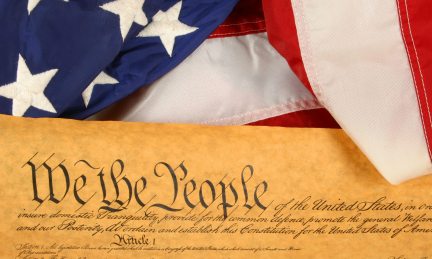Freedom Survey


Answering Question # 2
2. Do you believe freedom in America is:
a decreasing
b increasing
c holding steady
Though the answer to this question is not definitive, 76% of those in our pilot survey believe freedoms in our nation have been decreasing. However, encroachments upon freedom are usually done so gradually that most people don’t notice. Those who do notice and sound the alarm are often spun as troublemakers or extremists. It should also be pointed out that without a basic understanding of our history and what our freedoms have been, we have no reference point to judge the present state of affairs; this is why we fall for the spin. But as we begin to understand how the founders intended our government to operate and the freedoms they sought to protect, the erosion of our liberty becomes more evident.
Laws and actions that chip away at freedom are usually given friendly or patriotic labels that make them sound like something good. Only later do we find out how much they cost us in taxes or how much our personal freedom or privacy has been damaged. This practice of deceptive labeling has been around for a long time. In 1889, American philosopher and historian John Fiske wrote:
“But
the gravest dangers are those which present themselves in new forms,
against which people’s minds have not yet been fortified with
traditional sentiments and phrases…”4
An example would be the USA Patriot Act passed under George W. Bush. Patriot Act – nice label. After all, who is against being patriotic? It was sold as a law that would enable government to protect citizens from terrorists. Again, who would be against that? But it actually grew government bigger, resulted in the violation of the Fourth Amendment, and sacrificed privacy and personal freedom for millions of Americans.
Another example would be the Affordable Care Act (aka: Obama Care) passed under Barack Obama. Everyone wants affordable healthcare, right? But it quickly became clear that there was nothing affordable about it, causing health care premiums to rise. Nor did it increase the level of care, causing many to be dropped from their insurance. However, it did give the government more control over citizens, substantially decreased personal freedoms, and forced people to buy a product under threat of fines.
These are just two examples of dangerous and flagrant abuses that go against the intent of the Constitution and the rights it is intended to protect.
The Bill of Rights (the first ten amendments to the Constitution) has a preamble which spells out its purpose. The preamble says, “...in order to prevent misconstruction or abuse of its powers, ... further declaratory and restrictive clauses should be added...” 5 This shows the founders’ concern that the Constitution could be misconstrued and federal government could assume too much power. The U. S. Constitution was written with the purpose of limiting federal government by defining its role to specific services for the people. Everything else was the responsibility of the individual or the states, which is the point of the Tenth Amendment:
“The
powers not delegated to the United States by the Constitution, nor
prohibited by it to the States, are reserved to the States
respectively, or to the people.” 6
But when federal government, whether a judge, a president, or Congress, assumes that it has the power to overrule the people and the states in matters where the Constitution does not specifically give it authority, it is an abuse of the Constitution. As pointed out by Jefferson, the correction for this abuse is to educate the people regarding the intent of the Constitution otherwise they will not know the abuse is taking place.
It is a universal principle: The bigger government gets, the less freedom we have.
-----
Answers Index Answering Question #3
Answers Index Answering Question #3
4. Fiske, The Beginnings of New England, 1889, p 32
5. From the Preamble to the Bill of Rights
6. Tenth Amendment to the United States Constitution
5. From the Preamble to the Bill of Rights
6. Tenth Amendment to the United States Constitution
---
Subscribe to our email list for results from the Feedom Quiz survey and other educational information.
The Knowledge Is Power Project is brought to you by Purpose Ministries
(c) copyright 2014, Brad Sherman
Subscribe to our email list for results from the Feedom Quiz survey and other educational information.
The Knowledge Is Power Project is brought to you by Purpose Ministries
(c) copyright 2014, Brad Sherman